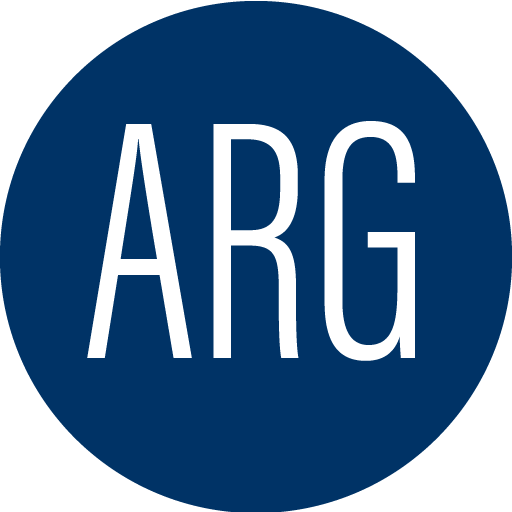This event was organised as part of the Genocidal Captivity exhibition events series.
This virtual panel will bring together speakers in conversation, moderated by Dr Rebecca Jinks, to discuss their foundational and wide-ranging work on interviewing survivors of the Holocaust and genocide. Reflecting on themes in the Library’s current exhibition, the panel will explore different contexts in which survivors have ‘testified’ and in which their experiences are told and heard.
How do different contexts impact how survivors’ stories are shaped, retold and received? What is the role of the interviewer in shaping these accounts? What impact do interviews and ‘testimony’ have on the survivors themselves, the relationships between interviewers and interviewees, and our understanding of the historical events? How do interviews and ‘testimony’ impact the lives of survivors, the relationships between interviewers and interviewees, and our understanding of these events more generally?
About the Speakers
Dr Bea Lewkowicz is an orał historian, filmmaker and photographer. Her work focusses on identity, displacement, trauma and loss, often through the lens of her interviews with Holocaust survivors and refugees. She is the director and co-founder of the AJR Refugee Voices Testimony Archive and Sephardi Voices UK. Bea has curated exhibitions, such as ‘Continental Britons’, ‘Double Exposure’, ‘Still in Our Hands’ and has directed many testimony-based films. She was one of the academic advisor for the Kindertransport exhibition ‘I said Auf Wiedersehen’, displayed at the German Bundestag in 2024. Among her publications are ‘The Jewish Community of Salonika: History, Memory, and Identity (2006), ‘This is the Story of my Life’: An Interview with Julius Carlebach’ (2020), and Émigré Voices: Conversations with Jewish Refugees from Germany and Austria (2022). www.bealewkowiczarchive.com.
Henry (Hank) Greenspan, Ph. D., is an Emeritus Lecturer IV in the Residential College affiliated with the Social Theory and Practice program. Greenspan is a psychologist, oral historian, and playwright at the University of Michigan who has been interviewing, teaching, and writing about Holocaust survivors since the 1970s. Rather than single “testimonies”, Greenspan has pursued multiple conversations with the same survivors over months, years, even decades. That practice, which centers on collaborative exploration rather than witness declaration, is most fully described in his On Listening to Holocaust Survivors: Beyond Testimony.
Anika Walke is Georgie W. Lewis Career Development Professor and Associate Professor of History at Washington University in St. Louis. She was recently appointed as the inaugural Askwith Family Associate Professor of Holocaust Studies at Carnegie Mellon University, effective August 2025. Her book, Pioneers and Partisans: An Oral History of Nazi Genocide in Belorussia (Oxford University Press, 2015) shows how the first generation of Soviet Jews experienced the Nazi genocide and how they have remembered it after the dissolution of the USSR in 1991. A current research project is devoted to the long aftermath of the Holocaust and World War II in Belarus. From 2014 to 2022, Walke served as Co-PI of “The Holocaust Ghettos Project: Reintegrating Victims and Perpetrators through Places and Events,” an NEH-funded endeavor of the Holocaust Geographies Collaborative to develop a Historical GIS of Nazi-era ghettos in Eastern Europe. At the moment, Dr. Walke is a Marie Skłodowska-Curie Senior Fellow at the Freiburg Institute for Advanced Studies at Freiburg University (Germany).
Moderated by:
Dr Rebecca Jinks is a historian of comparative genocide and humanitarianism at Royal Holloway, University of London. She is the author of Representing Genocide: The Holocaust as Paradigm?, which examines the ways in which representations of the Holocaust have influenced how other genocides are understood and represented, focusing on the ‘canonical’ cases of genocide – Armenia, Cambodia, Bosnia, and Rwanda. Her current research project, ‘Genocidal Captivity’, is funded by the AHRC and explores the experiences of Armenian and Yezidi women genocide survivors in 1915 and 2014.
Chaired by:
Dr Christine Schmidt is the Deputy Director and Head of Research at The Wiener Holocaust Library. Her research has focused on postwar tracing and documentation efforts, the concentration camp system in Nazi Germany, and comparative studies of collaboration, rescue and resistance in France and Hungary. Her current project focuses on a collection of survivor accounts recorded by the Library and led by Eva Reichmann in the 1950s.













![Walker Road closed after four-vehicle accident [Video]](https://accidentrecoverygiving.com/wp-content/uploads/2024/07/mp_466502_0_damagedminivanonwalkerroad169487681719954224008jpg.jpg)
![Good Samaritan run over by his own truck after fleeing suspect steals it [Video]](https://accidentrecoverygiving.com/wp-content/uploads/2024/07/mp_466496_0_3Y6ESGLTY5DWZNWPFO2L4TSMRQJPG.jpg)
![Russia, North Korea sign alliance pact promising protection [Video]](https://accidentrecoverygiving.com/wp-content/uploads/2024/06/mp_446186_0_e592f39577074b4b982bffc80158dc991140x641jpg.jpg)
![Man arrested for deadly DWI crash, fleeing wreck on Albuquerques westside, police say [Video]](https://accidentrecoverygiving.com/wp-content/uploads/2024/07/mp_464180_0_3e6892975f85768a2d0d729cb135aede.png)

